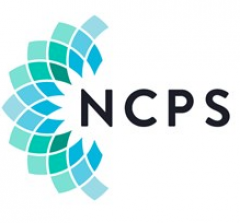Grace Walsh
Integrative counsellorAbout Me
My name is Grace Walsh and I am the former North England Conference (NEC) Health Director. I retired in 2020 and formed my own company, EQUIP HEALTH Limited. I am an inspiring provider of healthy lifestyle management and I bring a wholistic approach to health including spiritual, emotional, physical, intellectual, cultural and social wellbeing. I have vast experience both in Mental Health Nursing, Lecturing and Counselling. I use my knowledge and skills to empower people to live a healthy life. At present I am working as an Integrative Counsellor. I use the Integrative approach because I do believe that one size does not fit all. In my own development as a Counsellor it has been my increasing desire to integrate and blend rather than eliminate or criticise. I am persuaded that integrating the best components of several therapies is far more effective than any one alone. My Integrative Approach comprises, the Person-Centred Approach, Psychodynamic and Cognitive Behavioural Approach (CBT).
With the Person–Centred Approach, I have the conviction that all clients have within themselves vast resources for development. They have the capacity to grow towards the fulfilment of their unique identities, which means that self-concepts or behaviours can be modified. My task is to create new situations of relationship where the growth process can be encouraged and the inhibiting or distorting conditions alleviated. I use the core conditions of Empathy, Congruency and Unconditional Positive Regard are very important in the Person Centred Approach
Two basic theoretical assumptions of the Psychodynamic approach are that our present behaviour is influenced by our past experiences and that mental forces influence our development and motivate our behaviour. The main features of the psychodynamic approach are that our difficulties have their ultimate origin in childhood experiences and that we may not be consciously aware of the true motives or impulses behind our actions. Schemas are hard to change and they are supported by cognitive, behavioural and emotional elements and my therapy must address all of these elements because changes in only one or two realms will not work.
The third component CBT, is based on the idea that our thoughts cause our feelings and behaviours, not external things, like people, situations, and events. The benefit of this is that people can change the way they think or feel and act better even if the situation does not change. Our emotional problems are caused by ‘crooked thinking’ arising from viewing life in absolutistic and exaggerated manner. CBT dwells very little on theoretical baggage and exploration of the past. The emphasis is on finding pathways to changed behaviour. With CBT it is important to have a good, trusting relationship, but that is not enough. My clients change because they learn how to think differently and they act on that learning. Unlike some other talking treatments, in CBT I deal with the current problems, rather than focusing on issues from my past. I help the clients look for practical ways to improve the state of their minds on a daily basis and deal with the here and now for example, how current thoughts and behaviours are affecting the present.
Issues often worked with
Types of therapy
Therapy offered
Client groups
Fees
£30 Unemployed and Young people (45 minutes)
£45 General public (45 minutes)
Training and qualifications
Level 4 Diploma in Counselling Practice.
PGDIP in Health Promotion
PGC Mentoring
BSc Hons Nursing
B A Social Studies
Registered Mental Nurse (RMN
Certificate in Education
Mental Health First Aider and Suicide First Aid Trainer.
Verified professional membership

